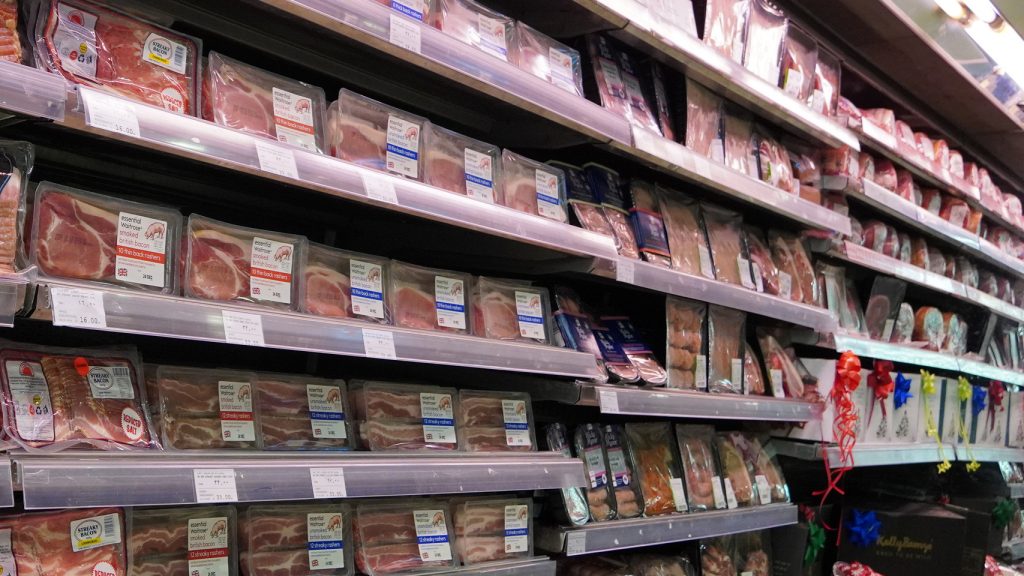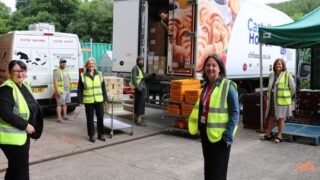UNISON has teamed up with a bereaved father to make sure that England and Wales doesn’t lose food safety standards to deregulation.
Campaigner Steve Nash, UNISON national officer Paul Bell and lawyer Sean Humber delivered a 216,938-strong petition to the Food Standards Agency (FSA) headquarters in London.
It calls on new FSA chief executive Emily Miles to scrap plans that would permit slaughterhouses to carry out their own safety inspections.
“What the FSA is trying to do is move to a risk-based approach to inspection with slaughterhouses,” said Mr Bell.
What that means is that instead of independent meat hygiene inspectors being on the ground every day watching what’s happening, the agency “wants to have businesses inspected less frequently”.
“Then, depending on what comes out of that, they may not be inspected again for the next three years. It’s a cost-cutting move but could have a devastating impact on public health”,” he added.
The FSA was set up in 2000 after BSE or “mad cow disease”, to control bad practice within the food industry and put public health first. Checking the quality and labelling of meat, and preventing contaminated meat from making it to the public, is one of its most crucial responsibilities.
But the move to deregulate inspection would remove that core responsibility.

Steve Nash understands the devastating consequences of contaminated meat being consumed by the public.
His daughter Joanna ate meat at a fast food restaurant which contained the deadly bacteria e coli. She suffered multiple organ failure and died within nine days.
“To get over 200,000 people’s support for this is terrific,” he said as the petition was handed in. “It’s not a very sexy subject, or something that people ever really have to think about, so I’m really pleased.”
UNISON members in the FSA and working as environmental health officers in local government would be affected by the proposed changes.
There used to be 1,500 meat inspectors. Now there are only 400, plus contractors. The political climate of cost-cutting and austerity has led to meat inspection being done on the cheap, and now the industry is on the brink of complete deregulation, warns UNISON
“You can’t do this on the cheap,” warned Mr Bell.
“Meat inspectors spend years doing qualifications and training. The industry is just looking at cost-cutting. In the post-Brexit world, we need to collectively think as a society – not just in government departmental silos – about joined up regulation efforts.
“It’s about keeping the public safe.”
Learn more about UNISON’s Protect Our Food campaign.





